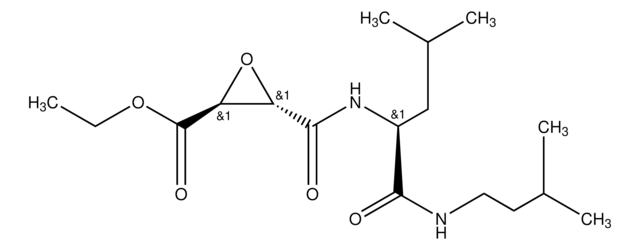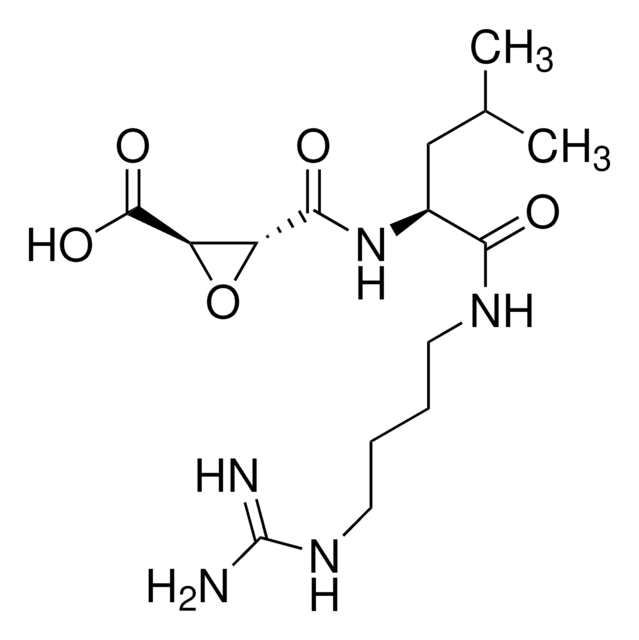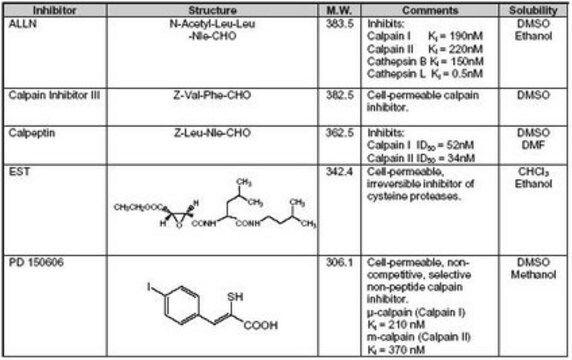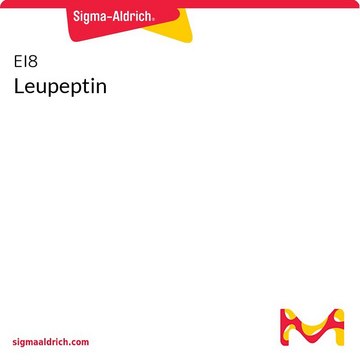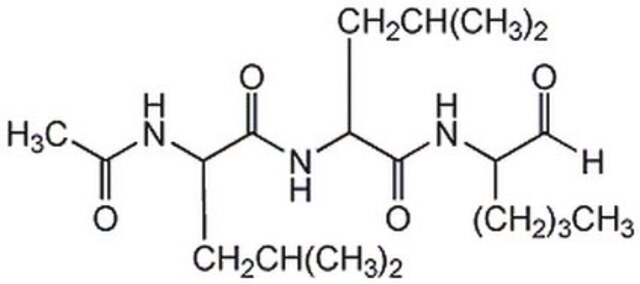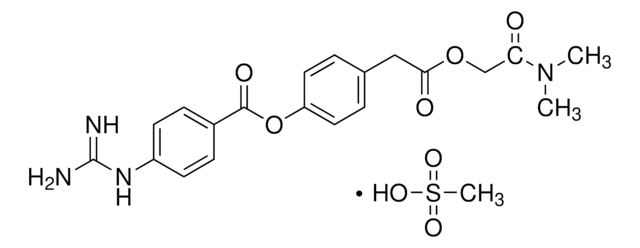330005
EST
A cell-permeable, irreversible inhibitor of cysteine proteases.
Sinónimos:
EST, Loxistatin, (2S,3S)- trans-Epoxysuccinyl-L-leucylamido-3-methylbutane Ethyl Ester, E-64d, Loxistatin, (2S,3S)-trans-Epoxysuccinyl-L-leucylamido-3-methylbutane Ethyl Ester, E-64d
About This Item
Productos recomendados
Quality Level
assay
≥97% (HPLC)
form
solid
manufacturer/tradename
Calbiochem®
storage condition
OK to freeze
color
white
solubility
DMSO: soluble
shipped in
ambient
storage temp.
−20°C
InChI
1S/C17H30N2O5/c1-6-23-17(22)14-13(24-14)16(21)19-12(9-11(4)5)15(20)18-8-7-10(2)3/h10-14H,6-9H2,1-5H3,(H,18,20)(H,19,21)/t12-,13-,14-/m0/s1
InChI key
SRVFFFJZQVENJC-IHRRRGAJSA-N
General description
Biochem/physiol Actions
calpain-1
Warning
Reconstitution
Other Notes
Mehdi, S. 1991. Trends Biochem. Sci. 16, 150.
McGowan, E.B., et al. 1989. Biochem. Biophys. Res. Commun.158, 432.
Tamai, M., et al. 1987. J. Pharmacobiodyn.10, 678.
Komatsu, K., et al. 1986. Exp. Neurol. 91, 23.
Tamai, M., et al. 1986. J. Pharmacobiodyn. 9, 672.
Legal Information
Storage Class
11 - Combustible Solids
wgk_germany
WGK 2
flash_point_f
Not applicable
flash_point_c
Not applicable
Certificados de análisis (COA)
Busque Certificados de análisis (COA) introduciendo el número de lote del producto. Los números de lote se encuentran en la etiqueta del producto después de las palabras «Lot» o «Batch»
¿Ya tiene este producto?
Encuentre la documentación para los productos que ha comprado recientemente en la Biblioteca de documentos.
Los clientes también vieron
Nuestro equipo de científicos tiene experiencia en todas las áreas de investigación: Ciencias de la vida, Ciencia de los materiales, Síntesis química, Cromatografía, Analítica y muchas otras.
Póngase en contacto con el Servicio técnico